Oldziey's Article



Wow, I finally found a copy of the January issue of Film Score Monthly - featuring an article by George Oldziey (who did the scores for WC3-WCP). Here's the article, which is rather well written and very interesting... there's a picture of the man himself at the bottom.
Wing Command Diary
One composer's experience writing in the Wing Commander Game Universe
by George OldzieyI was living the quiet life of an Austin, Texas freelance musician during the spring of 1994 when a friend told me about a job opening for a composer at Origin Systems, a leading producer of interactive entertainment software. Since I've always been one to seek new musical challenges, I quickly sketched a piece in the best tradition of action films (and slightly reminiscent of that "galaxy far, far away"), sequenced it with a borrowed computer and synthesizer module (with a lot of help from a friend) and recorded the piece to a cassette tape which I delivered a few days later. Two days after I submitted the tape I was hired. Unbeknownst to me I would be composing the music for the cutting-edge CD-ROM title, Wing Commander 3. The next six months turned out to be one of the most exciting and rewarding periods of my life.
Mission Background
Wing Commander, the popular interactive space-flight simulator series, has been known as an industry leader in the computer gaming realm for its use of cinematic-style graphics, video and sound since its inception almost four years prior to my arrival at Origin. Chris Roberts, the multi-talented creator, producer and director of each installment in the series, had always had the vision of blurring the boundaries between gaming and cinema. With Wing 3 this "interactive movie" concept would be pushed to its limits. It was to be the first interactive title to feature full-motion video with Hollywood stars Mark Hamill, Malcolm McDowell, John Rhys-Davies and Tom Wilson, and it would require an actual film score to enhance its ground aspirations. That's where I came in.
When I first arrived at Origin I was a neophyte to the computer game scene. I had been making my living as a performer (classical trumpet and jazz piano), composer and music teacher, both in New York City and Austin. Having just bought my first computer a year earlier, and having used my sequencing program just prior to submitting my Origin demo, I had rarely played any computer games and had never heard of Wing Commander. Nevertheless, I was literally thrust into a maelstrom that was the Wing Commander 3 production schedule.
Chris Robert's vision for the music was that it have an orchestral, film score quality. Having had conservatory training (Manhattan School of Music) and the opportunity to perform regularly in orchestras in New York City I felt prepared for that particular challenge. However, when I found out that all of the music had to be arranged for the General MIDI format, I really had to put my arranger's hat on. While General MIDI music definitely has its place in the computer game music world, trying to achieve that big film-score sound can be a daunting task given the polyphony (number of notes that can be heard simultaneously) and patch choice restrictions involved.Indoctrination
My initial assignment was to compose 30 minutes of "gameplay" or space flight music which would be heard while a player was within what the game programmers called an "action sphere." In other words, certain pieces would be grouped together and individually triggered by an event or level of intensity set in motion by the player. I was given an extensive list of short pieces ranging in length from five-second "jingles" which would be triggered by certain events such as blowing up a Kilrathi (big, cat-like bad guy) ship to three-minute "mission tunes" which the player would hear while cruising around the galaxy looking for action. Each piece, except the "jingles," had to be able to musically and seamlessly loop back to its beginning. They also had to be able to transition into any other piece that could be heard while in that particular action sphere. As a composer, I felt that this necessitated having music that did now establish a tonality, or key, for very long, if at all. All the music turned out to be tonal, and very thematic, but I kept it modulating frequently so that the ear did not perceive a sudden and awkward change when one piece would segue into another as the intensity level changed.
It took a month of trial and error to find the exact sound that Chris was looking for. After I found that sound, I enthusiastically dove into the task of completing all the gameplay music. Then, at one of our weekly team meetings, I Heard discussion about Chris and several team members heading out to Los Angeles for the "shoot." I was a bit confused. I thought we were working on a computer game. No one had told me that there was to be an actual movie in the game - over 3 1/2 hours of picture as it turned out. I leaned over to a co-worked and quietly asked what they were talking about and if there was going to be music for all this. He looked at me strangely and said, "Yes. Aren't you going to compose it?" I told him, "Yes, of course" - still not knowing for sure. It was later confirmed that I had in fact been hired to compose for the game's interactive movie portion. My first reaction was apprehension, because I had never had the chance to compose music to picture before. It quickly turned to excitement when I realized the scope of what we were undertaking. I ran out and bought a book on how to compose using SMPTE and then readied myself for the first reel.
Fortunately, when that first reel arrived, I was close to having completed my work on the gameplay music. Consequently I had a wealth of themes ad my disposal to use in the movie, to create a sense of continuity when going from playing the game to watching the flicks. The decision had been made to include a digital soundtrack to be synched with the digital video. This enabled me to go beyond the constraints of General MIDI and utilize some bigger sounds which I did with great joy.
During an early spotting session I was puzzled that many of the movie scenes seemed to end very abruptly and were then followed by several different possible conclusions to the same scene. This was the "interactive" part of the movie. The player would come to this point in certain scenes and then be given a choice about which path to take. As the composer I had to figure out a way for the music to branch off into several different paths, of which the player would hear only one at any given time. This was less problematic than I originally thought. I used similar transitional material to get from the main storyline to each individual branch and would then take the music for each branch to a separate logical conclusion based on where that particular dramatic ending would go - such as success, failure, death or total annihilation of the human species.
After coming to grips with the technical issues involved, I hunkered down for the remainder of the production and post-production schedule. Because of the sheer volume of picture involved, I usually had to begin working on a real before it was locked. I would received a locked reel weeks after I had finished composting to the unlocked version, which is nothing new to most film composer. Eight weeks and nine reels after I had composed over 2 1/2 hours of music to picture. A lot of work, but definitely a labor of love.Mission Accomplished
When I first arrived at Origin I literally had no idea how much excitement Wing Commander 3 was generating in the entertainment industry. During the course of production I was interviewed by various journalists who were doing stories on the progress of the game. I was being asked questions such as "How does if feel to be working on Wing Commander 3?" After all, we were doing things that hadn't been done before. I usually managed some appropriate answer, still wondering what all the fuss was about.
Looking back at what I was doing before Wing 3 and what I've been doing since, I realize that it was a big deal, especially on a personal level. It's not often that a composer gets such a huge project for his first credit. That definitely is not the norm in the entertainment industry. I've since completed two other Wing Commander titles for Origin, the epic Wing Commander 4 (which featured over five hours of pictures shot on film and over 3 1/2 hours of music!), and the recently released Wing Commander Prophecy. Each of these titles has received a lot of awards and critical acclaim for their groundbreaking visuals, sound and technology. I couldn't have hand-picked a more exciting and fulfilling opportunity to get started composing music for games and film.





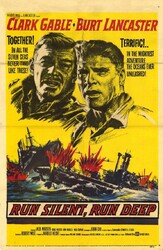

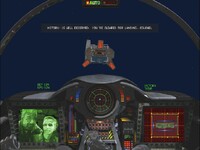
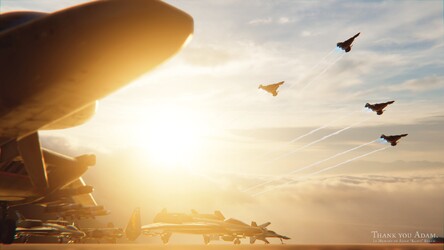
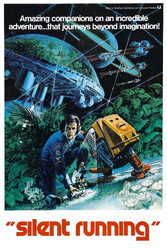

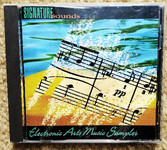
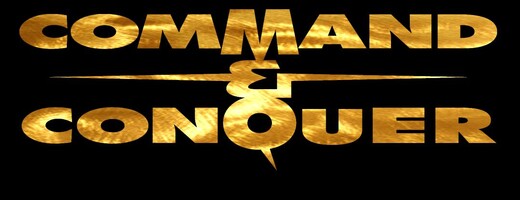
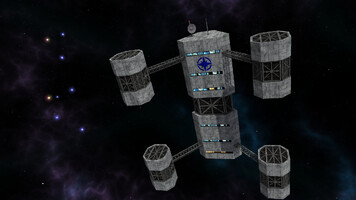

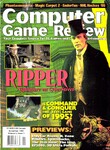
Follow or Contact Us